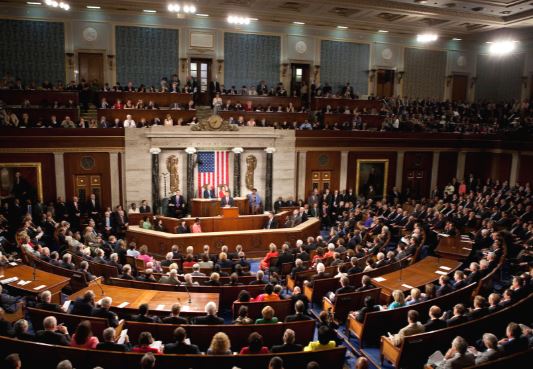WASHINGTON, DC — Earlier this week the U.S House of Representatives passed the Veterans Mobility Safety Act of 2015 (HR 3471), a bill designed to improve access to hearing care services for veterans. The revised bill now goes to the Senate for deliberation. In the original version of the bill hearing instrument specialists would have been granted expanded scope of practice within the VA system. However, the three professional audiology organizations, AAA, ADA and ASHA fought for amendments to the language of HR 3471, known as the Fit To Serve bill.
House bill HR 3471 original language was amended to reflect the concerns of the three audiology professional organizations. Jointly, the three organizations maintain that the Veterans Health Administration has the authority to hire hearing instrument specialists, but the revised language of the bill provides “congressional intent” on the role these professionals can play in the VA, restricting their job duties “to reflect their limited training and education.”
According to a joint statement from the American Speech-Language-Hearing Association (ASHA), the American Academy of Audiology (AAA) and the Academy of Doctors of Audiology (ADA), the revisions to HR 3471 were received as an important first step in “preventing hearing aid dispensers from expanding their scope of practice within the VA system and ensuring that veterans continue to receive the highest standard of audiologic care provided by, and under the direction of, qualified audiologists.”

Bill Obtains Greater Support with Changes
In a separate statement to the Hearing News, ADA president Dr. Rita Chaiken elaborated, “We are pleased the House of Representatives has recognized and sanctioned the important role of audiologists as clinical doctors, duly responsible for the development and oversight of patients’ audiologic plans of care. Equally important are the actions that Members of Congress have taken to appropriately restrict the role of hearing aid specialists to that of the fitting and dispensing of hearing aids only, which is commensurate with their limited training and education. While ADA continues to believe that this legislation is redundant with current policy, as the VA can already hire or contract with hearing aid specialists for these services, we are pleased that the legislation codifies some important patient protections that will help guarantee that America’s heroes receive the highest quality hearing healthcare services, provided by audiologists.”
On September 14, the International Hearing Society issued their own press release stating, “the bill contains critical provisions that would advance the goals of IHS’s ‘Fit to Serve’ initiative, a grassroots campaign focused on Veterans’ hearing healthcare services.”
Revised Language
Specifically, as first reported by the Hearing Review Insider, the language now contained in the Veterans Mobility Safety Act includes the following language:
(b) REQUIREMENTS.—With respect to appointing hearing aid specialists under sections 7401 and 7402 of title 38, United States Code, as amended by subsection (a), and providing services furnished by such specialists, the Secretary shall ensure that—
(1) a hearing aid specialist may only perform hearing services consistent with the hearing aid specialist’s State license related to the practice of fitting and dispensing hearing aids without excluding other qualified professionals, including audiologists, from rendering services in overlapping practice areas;
(2) services provided to veterans by hearing aid specialists shall be provided as part of the non-medical treatment plan developed by an audiologist; and
(3) the medical facilities of the Department of Veterans Affairs provide to veterans access to the full range of professional services provided by an audiologist.
(c) CONSULTATION.—In determining the qualifications required for hearing aid specialists and in carrying out subsection (b), the Secretary shall consult with veterans service organizations, audiologists, otolaryngologists, hearing aid specialists, and other stakeholder and industry groups as the Secretary determines appropriate






